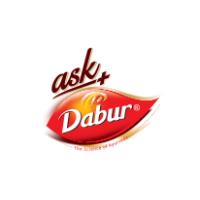
Ayurvedic Treatment
Advice for Allergy & Infection
Cough is a common symptom, or you can say feature, of viral
infections and allergies pertaining to respiration. A cough can also be caused
by other conditions, some of them can be really serious. For example, a cough
can be a symptom of asthma, acid reflux into the esophagus (gastroesophageal
reflux disease or GERD), hypersensitivity pneumonia (inflammation of the lung
from exposure to certain environmental chemicals), sinusitis, postnasal drip,
bronchitis, cigarette smoking, pneumonia, tuberculosis, and even lung cancer.
Therefore, cough, a persistent one, that is associated with chest pain, fever,
weight loss, or blood-tinged or discolored sputum needs the attention of a
doctor immediately.
Causes cough and other allergies:
- Some substances can be misperceived by our immune system as threats
- Dust, pollen, pollution and other airborne allergens can disrupt respiration
- Food allergy is caused as an adverse reaction to certain food items
- Contact allergy is caused by skin's reaction to some metals, fragrances or
latex
How to detect? Symptoms are as follows:
Reaction to allergens vary in individuals and can cause:
Hives
Rashes
Anaphylactic attack in severe cases
There are 3 types of allergies:
- Respiratory allergies which lead to
- Sneezing
- Coughing
- Watering of eyes and nose
- Asthma
- Food allergies which lead to
- Diarrhea
- Flatulence
- Eczema
- Skin rashes
- Swelling of throat
- Contact allergies which cause
- Itching inflammation
- Burning sensation
- Blisters
Allergic reactions other than cough, such as skin ailments are common during Monsoons, thanks to the high humidity in weather during rainy season and, which also becomes natural aggravation of Vata dosha. This can make your skin even more sensitive and expose it to skin allergies and skin troubles like itching, boils and allergic skin rash. Mixed symptoms of skin allergies and eruptions can arise due to vitiation of any of the three doshas viz, vata, pitta and kapha. The itching of the skin can happen because of the aggravated kapha, burning sensation and, sometimes, fever and nausea because of the pitta and the undue increase in vata causes pain.
People with predominant Vata dosha tend to have dry, rough,
scaly, thin skin and it also becomes prone to wrinkles. Those with a
predominant Pitta dosha tend to have reddish, delicate skin that is very
susceptible to rashes. Kapha constitutional types commonly have oily, thick
skin that is prone to breakouts. The dominant dosha of each individual decides
the various types of skin, which can be classified further into three types:
-
Vata Skin Type
-
Pitta Skin Type
-
Kapha Skin Type
Dry skin, also called xerosis, is a common problem. The skin needs a balanced amount of moisture to stay smooth and nimble, since retaining moisture is especially difficult in winter. Central heating of places like homes and offices can be very drying for the skin, and it is a common issue in the western countries.
Simple daily routines, like bathing and towel drying, might end up removing
moisture from the skin. Changing one's bathing routine helps retain skin
moisture. Bathing gives the skin more moisture temporarily, but it removes the
skin's oily lipid layer. In the long run, it causes more moisture loss instead
of gain.
In Ayurveda, it is believed to be a Vata imbalance created due to consumption
of much dry food, or difficult to digest heavy food, and also improper hygiene.
Do’s –
Apply oil massage
Use more oil on the sole of your feet and palms of your hands
To balance Vata and Pitta, avoid spicy and heavy to digest food
Fat, like ghee, must be a part of diet
Regularly exercise.
Follow a proper routine regularly
Drink a lot of water (preferably at room temperature, not too hot or cold)
Eat foods rich in Vitamin C and Vitamin E eg. fruits, green leafy vegetables
etc.
Don’t’s-
Avoid too much of dry food stuffs
Too much of fat must also be avoided
know more about -
Ayurvedic Treatment for Diabetes
| Ayurvedic Treatment For Cough |







